
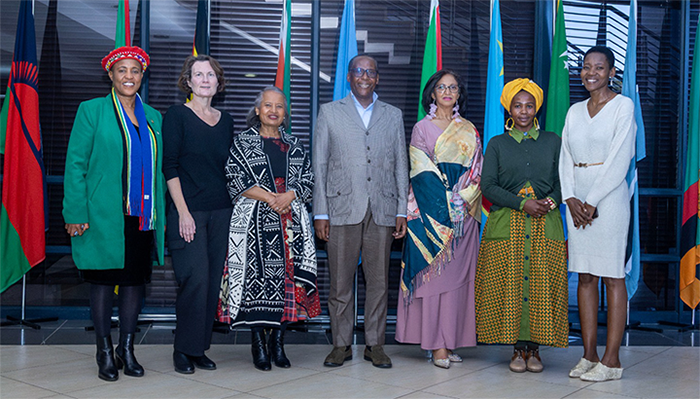
From left: Prof Edith Dinong Phaswana, Prof Jessica Murray, Dr Geraldine Frazer-Moleketi, Elias Monage, Prof Darlene Miller, Mmabatho Montse and Prof Puleng Segalo
On 6 August 2025, Unisa’s Thabo Mbeki African School of Public and International Affairs (TM-School), the College of Graduate Studies (CGS) and the Albert Luthuli Research Chair hosted a Women’s Day seminar, themed Visionary leadership and women’s leadership – the State of the Citizen Project in South Africa.
Programme director Dr Valery Louw introduced the event and its objective of exploring the relationship between visionary leadership and women’s leadership. The Acting Executive Director of the TM-School, Prof Edith Phaswana, acknowledged co-hosts Prof Jessica Murray of CGS and Prof Puleng Segalo, incumbent of the Albert Luthuli Research Chair, as well as other schools and institutes that have taken the lead in the area of gender studies at Unisa.
She welcomed Dr Geraldine Fraser-Moleketi, Chairperson of Tiger Brands and Chair of the Thabo Mbeki Foundation; Elias Monage, President of the Black Business Council; the ambassadors of Guinea, Senegal and Russia and other dignitaries; Mmabatho Montse, social activist and entrepreneur; and Prof Darlene Miller, Principal Investigator for this area of study at the TM-School.
Louw emphasised that Unisa’s Catalytic Niche Area 9, Feminist/Womanist/Bosadi theorisations, advocate for feminism as the highest form of humanity. "The most disrespected person in society is the Black woman," she said, "and revisiting the project of citizenship of South Africa in the light of the many crises facing our country is imperative, particularly in the context of patriarchy."
Fraser‑Moleketi’s reflections took the audience back to the groundbreaking Beijing conference, and she reminded them that citizenship, especially for women, is an inter‑generational project. "It is one that draws on the courage of radical women before us, on the value of upward mentorship and on the shared responsibility of women and men alike," she said. "If you are in leadership and you say you can’t, you should resign. Visionary leadership demands both resolve and accountability, especially in a time when right-wing currents threaten hard-won gains."
Monage said that South Africa’s greatest asset is its people, and that the resilience of the political economy is not enough while inequality remains entrenched. His emphasis on transparency, structural reform and the catalytic role of women entrepreneurs in driving innovation spoke to the economic backbone of an active, empowered citizenry.
Montse’s talk on Unmothered nation: Black womanhood, political betrayal, and the metaphysical crisis of citizenship in South Africa interrogated the failures of South Africa’s post-apartheid state through the lens of Black womanhood, ancestral ethics and African metaphysical frameworks. Montse argued that while the state has adopted the language of liberation, it has preserved the structural logics of colonial governance; patriarchal, racialised and extractive. "Women are hyper-visible in commemorative discourse but structurally abandoned," she said. "Public institutions demand symbolic participation without material transformation."
She stated that as capitalist interests tighten their hold on political life, citizenship has become transactional, identity politics instrumentalised, and governance detached from ethical accountability. She continued: "The figure of the 'strong Black woman' is celebrated in rhetoric, while those who resist containment are dismissed and branded as unstable, undesirable, or reduced to caricatures like 'slay queen'."
Montse’s presentation confronted that dissonance. It refused romanticised narratives of resilience and called for a deeper reckoning with the metaphysical violence of a state that governs through performance rather than care. Drawing on African womanist thought and principles such as Seriti, Botho and Umsamo, Montse offered a vision for re-spiritualising political life; one grounded in relationality, ancestral coherence and ethical regeneration. "A mothered nation is not a metaphor," she concluded. "It is a political, cosmological and structural imperative."
In her talk on Reconnecting with indigeneity, Miller explained that Unisa’s catalytic niche areas are important for catalysing and accelerating social change in South Africa, and that research needs to be placed at the service of society. She then reflected on ‘'being woman', drawing on the prose of Steve D’Lano to warn that "the Divine Feminine is not here to soothe your ego or stroke your insecurities…the womb is a cavern, not a sunbeam", challenging the myth of the eternally good 'Earth Mother'.
Miller then reflected on toxic femininity, advancing a typology for what she termed the PHD syndrome – the pull-her-down syndrome. She drew on the Russian revolutionaries of the early 20th century to argue that exacting conditions produce a high PHD index, an anti-collective, individualistic and competitive environment in which women unleash their suppressed aggression onto other women.
She concluded that women, and therefore women’s leadership, can cut down, hurt and do damage. "We compete with African sisters for places at hospitals, because there is not enough medical care for all of us," she said. "The spirit of the socialist collective – ubuntu - cannot thrive in the midst of want."
Miller turned to sources of visionary leadership and cited the pioneering initiative of the Green Leadership Schools, envisaged as a template for an academy that helps students to reconnect with their indigenous identities. "The 'connected crone', the old and wise woman of Africa, is able to understand the spirit of our ancestry," she said. "This is not the indigeneity of tribalistic divisiveness or the dismissal of Western science. Instead, it is the enlightened embrace of different civilisational knowledge from across the globe. As a path to ethical being, indigeneity must take centre stage in our citizenship project."
Murray summarised the intent of the seminar beautifully: "When we bring these perspectives together, we can see that the State of the Citizen Project is about far more than legal rights. It is about agency, dignity and participation in shaping both governance and the economy. This is where the catalytic niche area of feminist, womanist and bosadi theorisations can help us reimagine the terrain. These frameworks, grounded in African women’s lived experiences, teach us that leadership is as much about relationships, care and collective wellbeing as it is about policy or profit. They challenge the notion that progress for women can be symbolic only, reminding us that transformation must reach both the corridors of power and the spaces where everyday life unfolds."
The impact on the audience was visible, with some moved to tears. As one young man said, "I just want to say that I enjoyed the seminar, and your speeches were everything. You moved me in ways words cannot describe."
* Compiled by the Department of Institutional Advancement based on a submission by Stevens Mohapi, TM-School
** Photo by Mduduzi Khathamzi, Multimedia Centre
Publish date: 2025-08-19 00:00:00.0
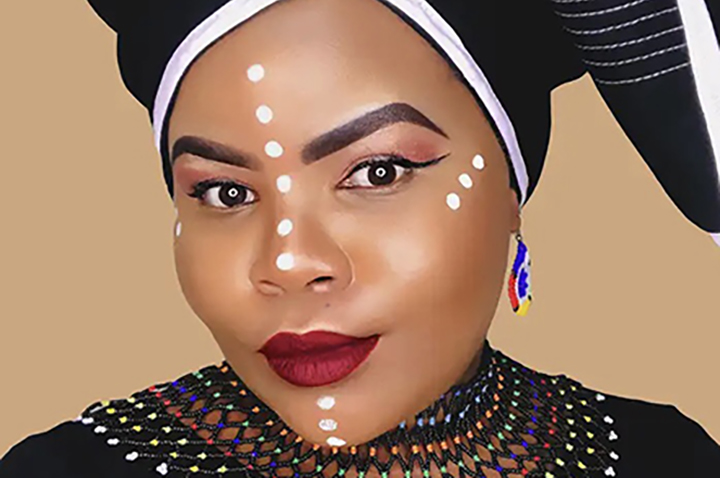 Unisa empowers award-winning agro-cosmetics entrepreneur
Unisa empowers award-winning agro-cosmetics entrepreneur
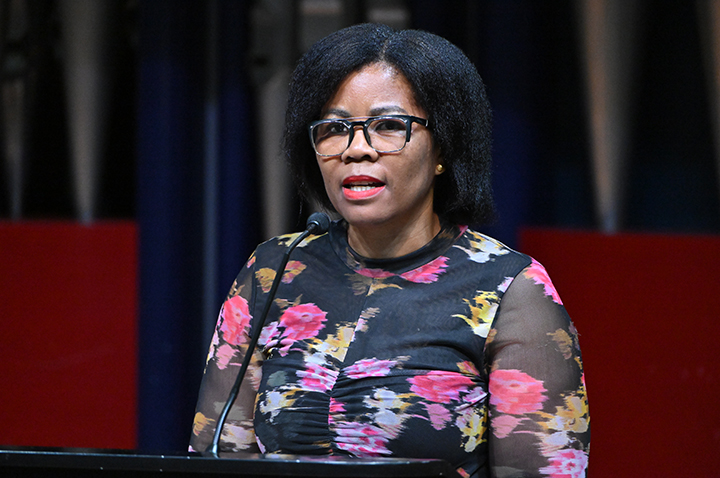 Unisa initiative offers early-career academics "a stepping stone towards greatness"
Unisa initiative offers early-career academics "a stepping stone towards greatness"
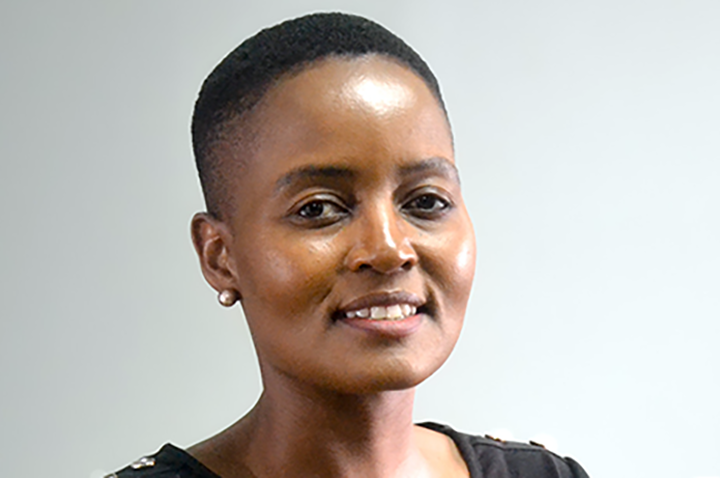 Seasoned meteorologist joins Unisa
Seasoned meteorologist joins Unisa
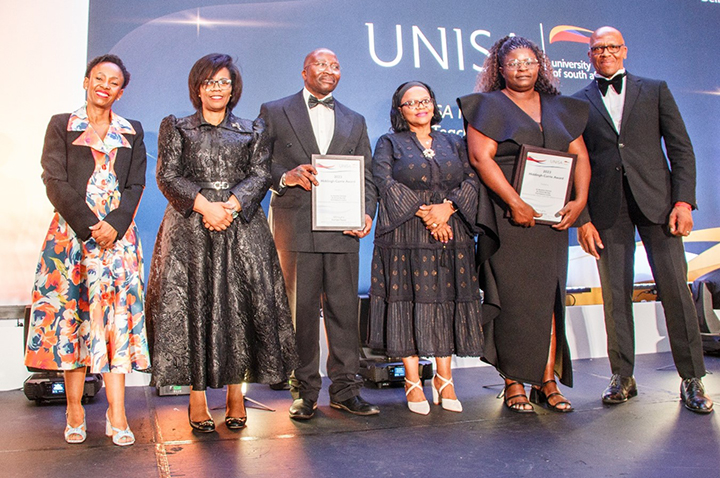 Unisa celebrates the 2023 and 2024 Hiddingh-Currie Award winners
Unisa celebrates the 2023 and 2024 Hiddingh-Currie Award winners
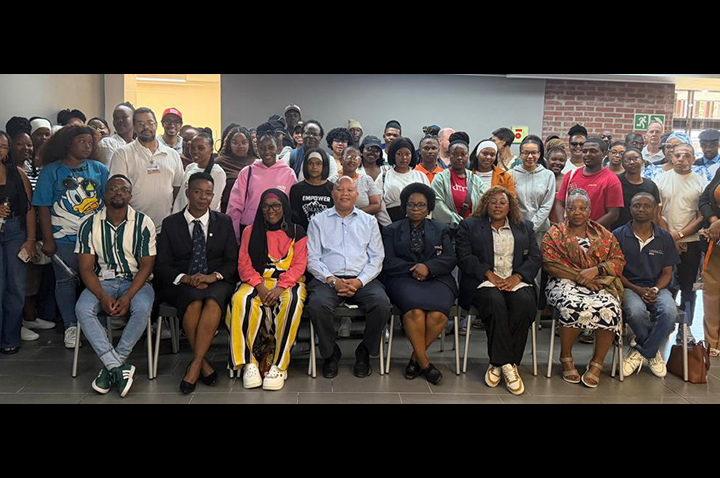 Unisa celebrates a project of hope, dignity and student success
Unisa celebrates a project of hope, dignity and student success